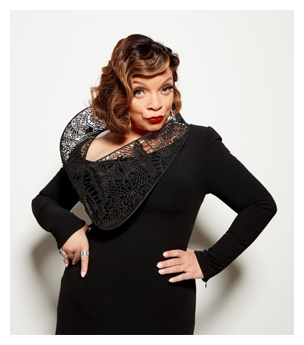While
Carter eschewed the wearable
tech that has featured prominently
in the comics ("I didn't
want you to look at it 10
years from now -- three
years from now -- and think
that looks outdated")
she embraced the bright
colors characteristic of
the medium -- vibrant reds
for the Dora Milaje; earth
tones for Nyong'o; a remarkable
green suit by British designer
Ozwald Boateng, who is of
Ghanaian descent, for an
elder statesman, accessorized
with a matching lip disk.
The titular Black Panther,
T'Challa, played by Chadwick
Boseman, stands out in his
monochrome suit.
 |
|
Ruth
E. Carter Credit:
Rich Fury/Getty
Images
|
|
"I
think people have their
own idea of what modern
and futuristic is. Modern
and futuristic to some means
that you wear black and
you're very simple and you're
very monochrome, but ...
(I used) color because it
was Africa, and Africa uses
a lot of color. You see
the Maasai tribe in beautiful
reds; you see the Turkana
tribe in beautiful purple.
That's just a fact of life,"
Carter said.
"If
(Wakanda is) a melting pot
of all of these different
cultures, and they're moving
forward with all of their
forward thinking and technology,
I don't think that they
necessarily leave their
cultural colors."
Since
its release last February,
the support for "Black
Panther" has been mighty.
Outside of its seven Academy
Award nominations (including
a groundbreaking Best Picture
nod) and global box office
takings totaling $1.347
billion, it's resonated
with black people across
the diaspora in a profound
way.
Carter
was delighted and proud
to see theatergoers around
the world attending screenings
in Wakanda-inspired ensembles.
("African-Americans
were doing the best they
could, and they were doing
a good job, but Africans
were like woo! They were
showing up!") Continue
...